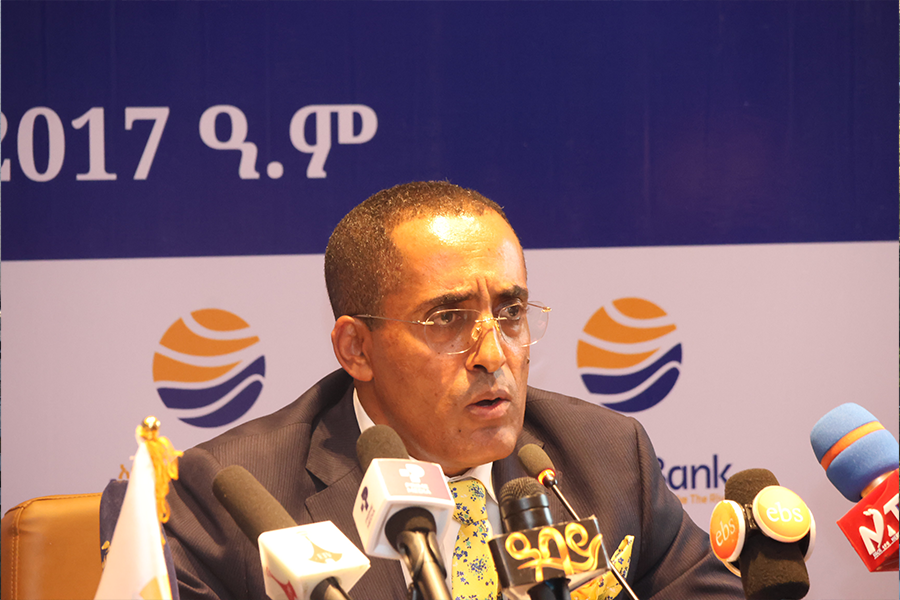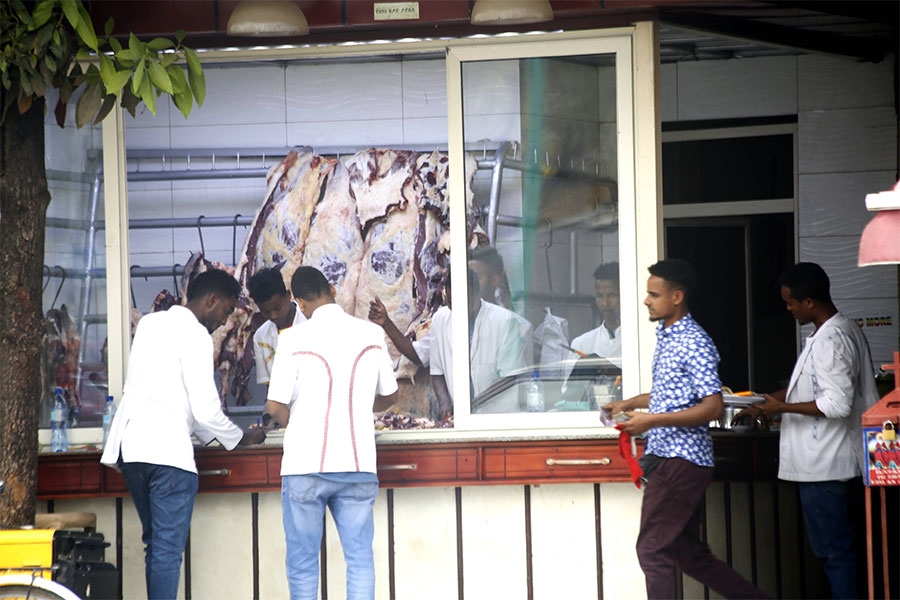
Jan 11 , 2020
By Hunduma Gari
Quality in higher education is a multi-dimensional and multilevel dynamic concept. But despite the government’s effort, quality in higher education is among the foremost challenges being faced in Ethiopia today. Regardless of the large amount of money being pumped into public universities, a number of them in Ethiopia are unable to meet international standards in education, while private universities are hard-pressed to meet the minimum requirements laid down by the Higher Education Relevance& Quality Authority (HERQA).
There are a myriad of factors that determine quality in higher education, which also includes the academic ranking and promotion system in higher learning institutions.
It is crucial to look at these factors, because it contextualises the state of the education system and its strategic importance to the national economy. Quality of education, especially higher learning institutions, develops skilled human power within the knowledge economy through which the nation will grow. Due to globalisation, there is increasing competition from developed and developing nations.
In every country, there are national educational policies and action plans along with educational assessments and accreditation criteria to maintain quality. Governments spend massively on higher education to equip youth to compete at the leading edge of economic activity, because all disciplines emerge from education. It is thus essential to redirect higher education in terms of goals, purposes and approaches and streamline it according to the nation’s vision.
Ethiopia is the second-largest country in Africa with an estimated population of young people aged between 18 years to 23 years being around 15 million. The sheer size of the market offers huge opportunities for the development of the higher education sector in Ethiopia. Ethiopia now boasts more than 50 universities, which has been quite a remarkable growth during the last two decades.
Just last year, there were hundreds of thousands of enrollments in public universities, which allows Ethiopia to brag that it has one of the largest educational systems in Africa. Unfortunately, the educational infrastructure is inadequate to handle such huge volumes. In spite of all the government spending in the education sector, it is just too insufficient to meet the growing requirements.
There are a number of challenges creating this hardship. One of these is a flawed system of academic promotions and rankings.
Academic promotion is the process that facilitates upward staff mobility within the institutional hierarchy. Ad hominem promotion refers to a process where individual staff members apply for personal promotion in response to institutional calls or self-initiated application and is distinct from applying for vacant posts that are open to external applicants.
Staff members apply for promotion to achieve recognition, status and increased remuneration. Since staff members vest their identities heavily in work, promotion is often a focus of their ambition. For the process to be credible, it needs to be fair and free from any suspicion that it is biased at the individual or group level.
The criteria required for upward mobility is the length of service within a given rank, effectiveness in teaching, publication records, participation in the affairs of the university and public service. Among these, publication in peer-reviewed journals is central. It objectively determines scholastic contribution in the respective field of study of the candidate. Unfortunately, predatory journals and academic publishers have made a mockery of a respected system of assessing the merit of academics.
Fighting against predatory academic publishers and predatory academic journals that are threatening the global scientific landscape is crucial. This being an era of fake news and alternative facts, it does not come as a surprise that the academic world has also become a victim.
This shady practice of buying academic credibility represents what one commentator called "academic racketeering". The damage that the predators cause to the much broader world of science and to our notions of academic freedom, information sharing, knowledge generation, translation and collegial connection is not something to condone.
There is an argument that novice researchers, unwary postgraduate students and over-eager new academics may be easily duped by the predators and their slick operations and are thus less blameworthy. They may be quite unaware of the damage that such publishing may do to their developing academic credibility and careers.
There are, for instance, examples of‘ troll publishers that insist on PhD and master's students signing over the copyrights to their thesis to them. After the students’ work is owned by a predatory publisher, they are essentially powerless regarding what may happen to it in the future.
It is much less easy to be forgiving of senior academics and professors who assuredly should know better. Most of us have heard of professors that employ their own students to complete their thesis for them. We could only wonder what kind of supervision and mentoring is happening here that they would allow a student to have so little respect for their own work that they would sign it over to them. The even more unpalatable thought is that some supervisors and students know exactly what is going on here and tacitly support it by turning a blind eye.
This is just a bird’s eye view of the crisis. It is thus time to act. Education is no different from other sectors. There is also corruption here. It occurs among academic staff and university leadership during promotions and journal and book publications. Unless these problems are addressed soon, they will continue to severely affect the quality of the education system.
PUBLISHED ON
Jan 11,2020 [ VOL
20 , NO
1028]


Fortune News | Oct 30,2022

Sunday with Eden | Nov 30,2019

Fortune News | Jun 14,2020

My Opinion | Apr 28,2024

Fortune News | Apr 30,2022

My Opinion | 131584 Views | Aug 14,2021

My Opinion | 127940 Views | Aug 21,2021

My Opinion | 125915 Views | Sep 10,2021

My Opinion | 123539 Views | Aug 07,2021

Dec 22 , 2024 . By TIZITA SHEWAFERAW
Charged with transforming colossal state-owned enterprises into modern and competitiv...

Aug 18 , 2024 . By AKSAH ITALO
Although predictable Yonas Zerihun's job in the ride-hailing service is not immune to...

Jul 28 , 2024 . By TIZITA SHEWAFERAW
Unhabitual, perhaps too many, Samuel Gebreyohannes, 38, used to occasionally enjoy a couple of beers at breakfast. However, he recently swit...

Jul 13 , 2024 . By AKSAH ITALO
Investors who rely on tractors, trucks, and field vehicles for commuting, transporting commodities, and f...

Jun 28 , 2025
Meseret Damtie, the assertive auditor general, has never been shy about naming names...

Jun 21 , 2025
A well-worn adage says, “Budget is not destiny, but it is direction.” Examining t...

Jun 14 , 2025
Yet again, the Horn of Africa is bracing for trouble. A region already frayed by wars...

Jun 7 , 2025
Few promises shine brighter in Addis Abeba than the pledge of a roof for every family...

Jun 29 , 2025
Addis Abeba's first rains have coincided with a sweeping rise in private school tuition, prompting the city's education...

Jun 29 , 2025 . By BEZAWIT HULUAGER
Central Bank Governor Mamo Mihretu claimed a bold reconfiguration of monetary policy...

Jun 29 , 2025 . By BEZAWIT HULUAGER
The federal government is betting on a sweeping overhaul of the driver licensing regi...

Jun 29 , 2025 . By NAHOM AYELE
Gadaa Bank has listed 1.2 million shares on the Ethiopian Securities Exchange (ESX),...